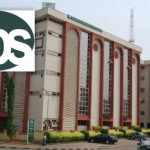
Unclaimed dividends, a persistent challenge in Nigeria’s capital market, have sparked frustration among shareholders. The issue remains unresolved despite the introduction of electronic systems and reforms by the Securities and Exchange Commission. TEMITOPE AINA addresses questions about systemic inefficiencies, lapses by registrars, and the impact of dead shareholders.
Introduction
The Nigerian capital market, which has long been considered a critical engine for economic growth, is now grappling with a significant crisis that has left investors in frustration and uncertainty. The unclaimed dividend crisis, which currently stands at a staggering N215bn, has raised questions about the effectiveness of the systems in place to manage shareholder dividends and the larger implications for investors, especially in terms of trust and confidence in the market.
A dividend is a portion of a company’s profits distributed to its shareholders, typically in the form of cash or additional stock.
In August, The PUNCH reported that the Securities and Exchange Commission had reiterated its commitment to resolving the lingering issue of unclaimed dividends through the deployment of advanced technology solutions and improved stakeholder engagement. The Director-General of the Securities and Exchange Commission, Emomotimi Agama, acknowledged the challenge posed by the mounting unclaimed dividends and vowed to reduce this backlog.
Despite the ongoing push for modernisation and improvements in the sector, such as the introduction of the electronic dividend (e-dividend) system by the Securities and Exchange Commission and other reforms, many investors still find themselves unable to claim their dividends. The reasons for this lingering issue are manifold, from registrars’ inefficiencies to shareholders’ inability to keep track of their investments, as well as the challenges posed by deceased investors’ estates.
The crisis has reached alarming proportions, with the figure for unclaimed dividends growing steadily each year. In the face of these setbacks, shareholders lament the systemic flaws, and questions are being raised about the role of registrars, the government, and market regulators in addressing this prevalent issue. The financial and psychological toll on investors is immense, and the lack of a clear and efficient mechanism for dividend payment only exacerbates the sense of alienation in the capital market.
Historical data of unclaimed dividends
The issue of unclaimed dividends in Nigeria’s capital market has grown significantly over the years, highlighting deep-rooted inefficiencies within the system. In 1999, unclaimed dividends stood at N2.09bn, but by 2015, the figure had skyrocketed to N90bn. The trend continued as unclaimed dividends reached N158.44bn in 2019, N168bn in 2020, and N177bn in 2021. Most recently, by 2023, the amount surged to N190bn and currently stands at N215bn, underscoring persistent challenges such as outdated processes, lapses in record-keeping, and systemic barriers to claims. This alarming increase reflects the urgent need for reforms to address the structural causes of the growing problem.
Background to the crisis
The unclaimed dividend crisis has been an issue for many years and has only gained significant traction in the last decade as more and more shareholders have come forward with complaints. The introduction of the e-dividend system, which was meant to streamline the process of dividend payment and distribution, has helped somewhat by reducing the time and effort required for claimants to access their funds. However, it has not completely solved the problem, and in some cases, it has added more layers of complexity.
A large portion of the issue lies in the role of registrars, the entities responsible for maintaining accurate shareholder records and processing dividend payments. Registrars have often been criticised for poor record-keeping, inefficient responses to enquiries, and a lack of accountability in managing shareholder data. This has contributed to a situation where dividends are either not paid out on time or remain unclaimed due to systemic failures.
In addition to registrars’ lapses, another contributing factor is the increasing number of shareholders who have passed away without their families or heirs being aware of their investments. This has compounded the problem, leaving substantial amounts of dividends unclaimed for long periods.
Impact of late shareholders and family challenges
The National Coordinator of the Pragmatic Shareholders Association of Nigeria, Bisi Bakare, shared her perspective on the issue, highlighting how the e-dividend system has improved accessibility but still leaves significant gaps.
“Frankly, so far, I don’t have any issues in claiming my dividends. Thereby, none of my dividends are standing unclaimed today,” she said, praising the advancements in the electronic dividend (e-dividend) system.
However, Bakare pointed to a critical problem: the struggles faced by families of deceased shareholders. “The major reasons for large amounts of unclaimed dividends in the market are late shareholders whose families are finding it very difficult to get what registrars are demanding from them to claim the dividend,” she explained.
She also highlighted another significant issue: the unawareness of some families about their late relatives’ investments. “There are many shareholders who are late, and their families are not aware they have shares in those companies. Nobody will claim the dividends till eternity,” she added.
Bakare further underscored the complications arising from the irregularities during the privatisation era. “We have shareholders that bought shares with different names for reasons best known to them. Up till today, they can’t remember the names or addresses they used,” she noted.
Registrars under fire for inefficiencies
The inefficiencies of registrars in managing shareholders’ records have drawn criticism from investors. The President of the Noble Shareholders’ Solidarity Association, Mathew Akinlade, recounted his ordeal, calling for greater accountability.
“I have challenges in claiming my dividends with only two registrars where I have more than one account for the same company. Somehow, the amounts were insignificant. Hence, I have not pursued them. It hasn’t affected my investment strategies in any way,” Akinlade explained.
Akinlade corroborated Bakare’s assertion about the late investors being the major contributors to the large unclaimed dividend, noting that, “I believe the large sum in unclaimed dividends will be due to deceased investors who had died without leaving a will, and their relations and children are not aware of their investments.”
However, he criticised the registrars for their lapses. “I have seen circumstances where registrars opened more than one account for me, even when my name, address, phone number, and email address were the same. Such accounts should be automatically consolidated,” he said.
He further argued that registrars’ inefficiencies contribute significantly to the unclaimed dividend crisis. “Registrars’ lapses in maintaining proper records and coordinating accounts have left many dividends unclaimed. They must take responsibility,” he stressed.
Akinlade also expressed disapproval of the government’s attempts to claim unclaimed dividends after the statutory period, stating, “What is equitable is to return the unclaimed dividends to the paying company after the years allowed statutorily rather than the government asking for the money. The government had taken their share of the profit in terms of company income tax and withholding tax on dividends. They have no business asking for the unclaimed dividends to be returned to them.”
Grassroots investors face bigger hurdles
For minority shareholders, the process is often more challenging. Ariyo Olugbosun, a shareholder, recounted his experiences with registrars, highlighting the lack of coordination and accountability.
“My e-mandate cannot be processed because the registrars claim my signature record is missing from their archives,” he said. “These experiences have negatively impacted my trust in the market, highlighting a lack of coordination among key players. The SEC must hold registrars accountable, as the bulk of these problems stem from their lackadaisical attitude.”
Olugbosun also criticised the handling of estates for deceased shareholders. “The difficulties surrounding record-keeping, hurdles, and costs related to managing the estate of a deceased shareholder are a significant barrier. Registrars must collaborate and cross-check their databases, as a shareholder experiencing challenges with one registrar may have smooth transactions with another,” he explained.
Calls for legislative reform, public awareness
The National Coordinator of the Progressive Shareholders Association of Nigeria, Boniface Okezie, emphasised the need for legislative reform to address the crisis. He argued that the statute of limitations on unclaimed dividends, as outlined in the Companies and Allied Matters Act, must be reviewed.
“The law says after 12 years, if no shareholder comes forward to claim dividends, it must revert to the companies that declared them. Why are they jettisoning that provision of the Companies and Allied Matters Act? SEC must call for an amendment of that section of the law,” Okezie stated.
He also called for more public awareness campaigns, particularly for grassroots investors. “The SEC must embark on enlightenment programmes with other stakeholders. The immediate past administration of SEC under the leadership of Gwazo introduced e-dividends, but that has not solved the issue entirely. The message has not gotten to the grassroots or even urban dwellers,” he said.
Looking ahead
As the unclaimed dividend crisis deepens, stakeholders are calling for urgent reforms. Improved record-keeping, stricter oversight of registrars, and grassroots awareness campaigns are seen as vital steps to address the N215bn dividend crisis.
While the SEC continues to implement technological solutions and engage with stakeholders, it is clear that the resolution of this crisis will require a coordinated, multi-pronged approach. Until then, shareholders, both living and dead, will remain victims of a system in need of repair.
E-dividend portal to mitigate crisis
The Securities and Exchange Commission has intensified efforts to address the unclaimed dividend challenge through technological advancements. According to The PUNCH, the SEC has urged investors to leverage the revamped e-dividend portal to mandate their accounts, highlighting the platform’s enhanced security and user-friendly interface.
In a bid to tackle legacy identity management issues, the SEC inaugurated an in-house committee in January 2019 to examine and resolve these persistent challenges. The committee’s report underscored the critical need for consolidating investors’ data and finding a sustainable solution to identity-related hurdles in the capital market.
Building on these recommendations, the SEC dissolved the in-house committee in 2021 and established a market-wide committee to conduct a more comprehensive investigation into Nigeria’s identity management crisis. This broader approach aims to deliver lasting reforms and foster greater efficiency in managing shareholder records, ultimately reducing the volume of unclaimed dividends.



